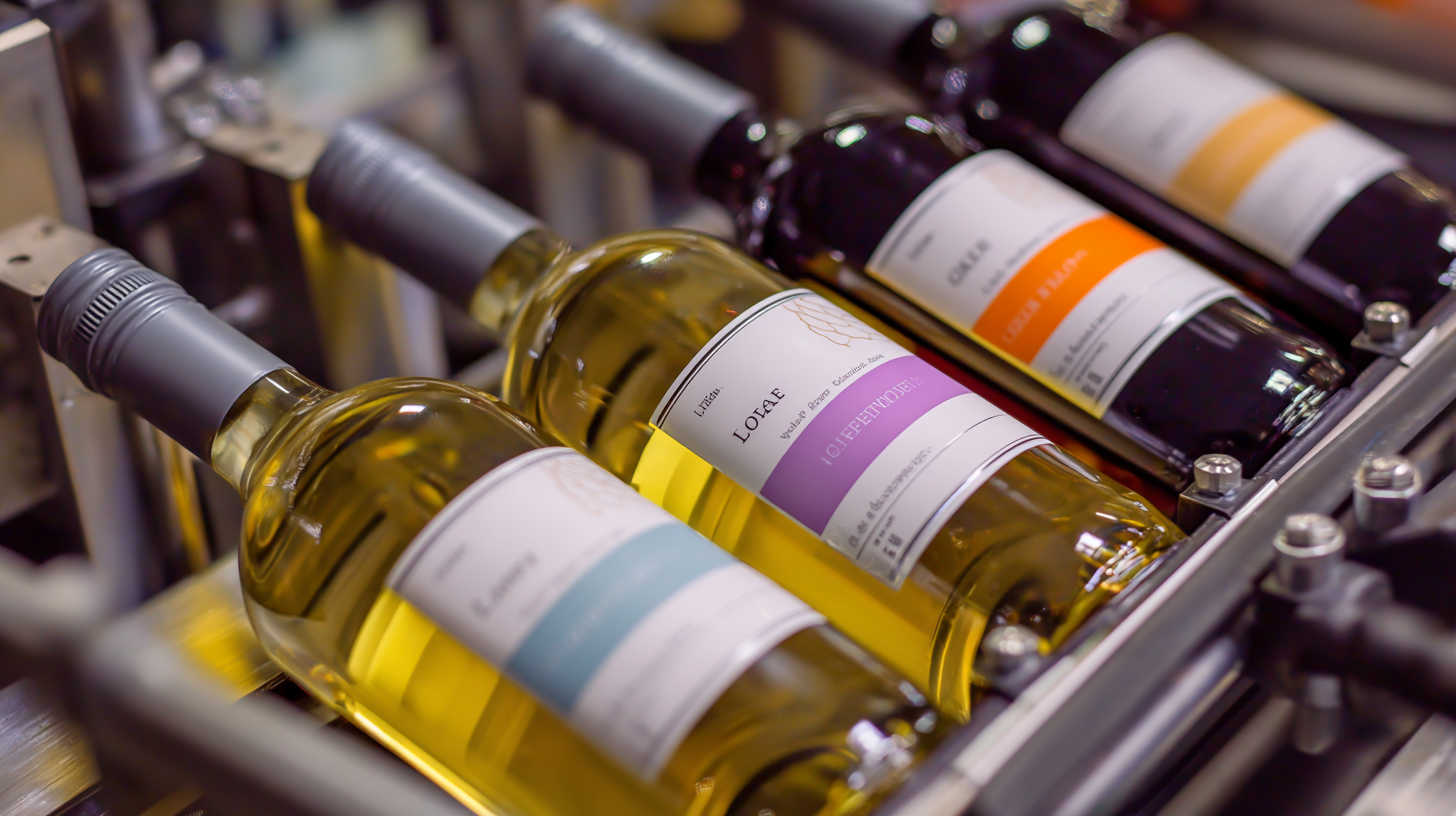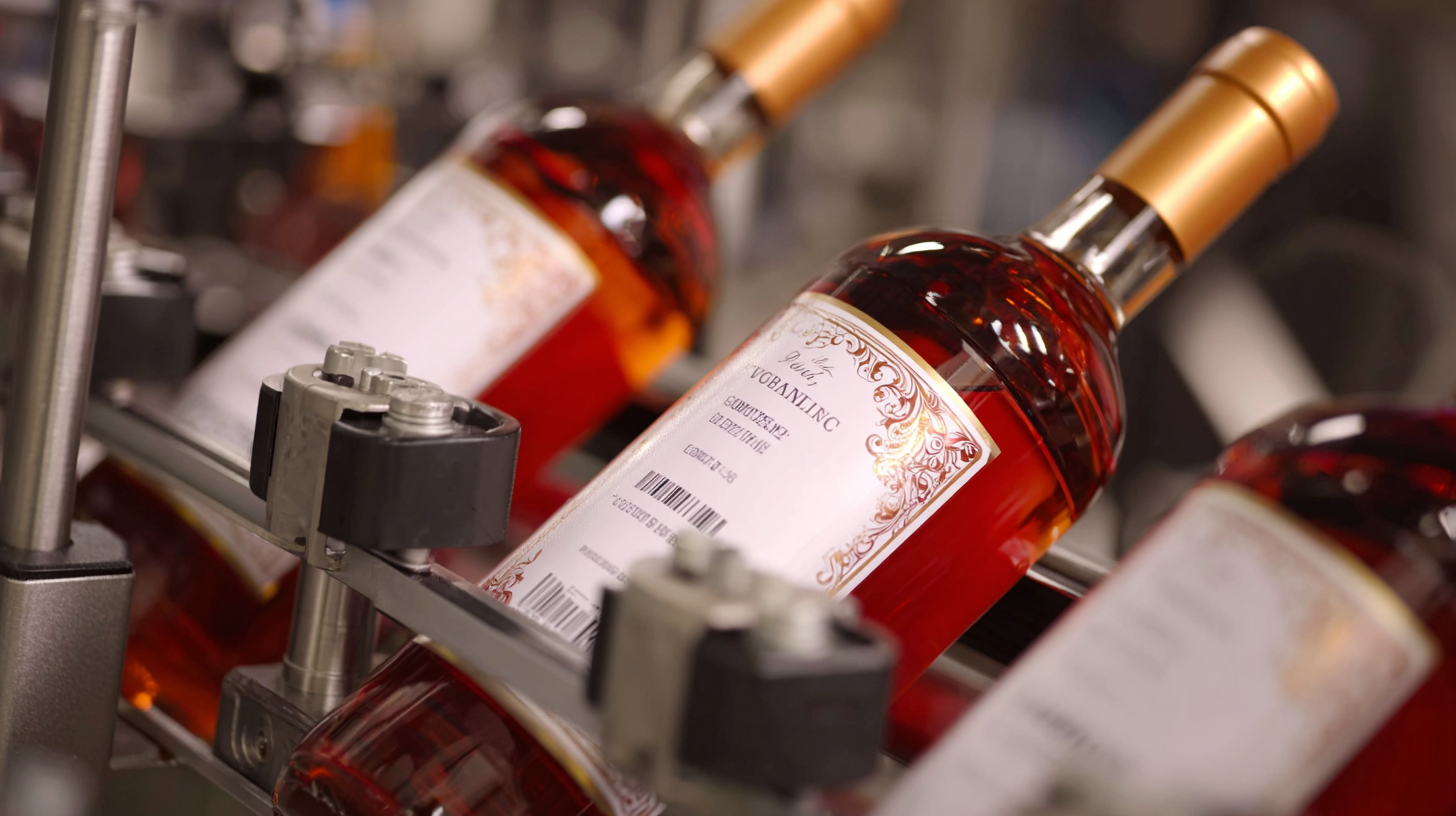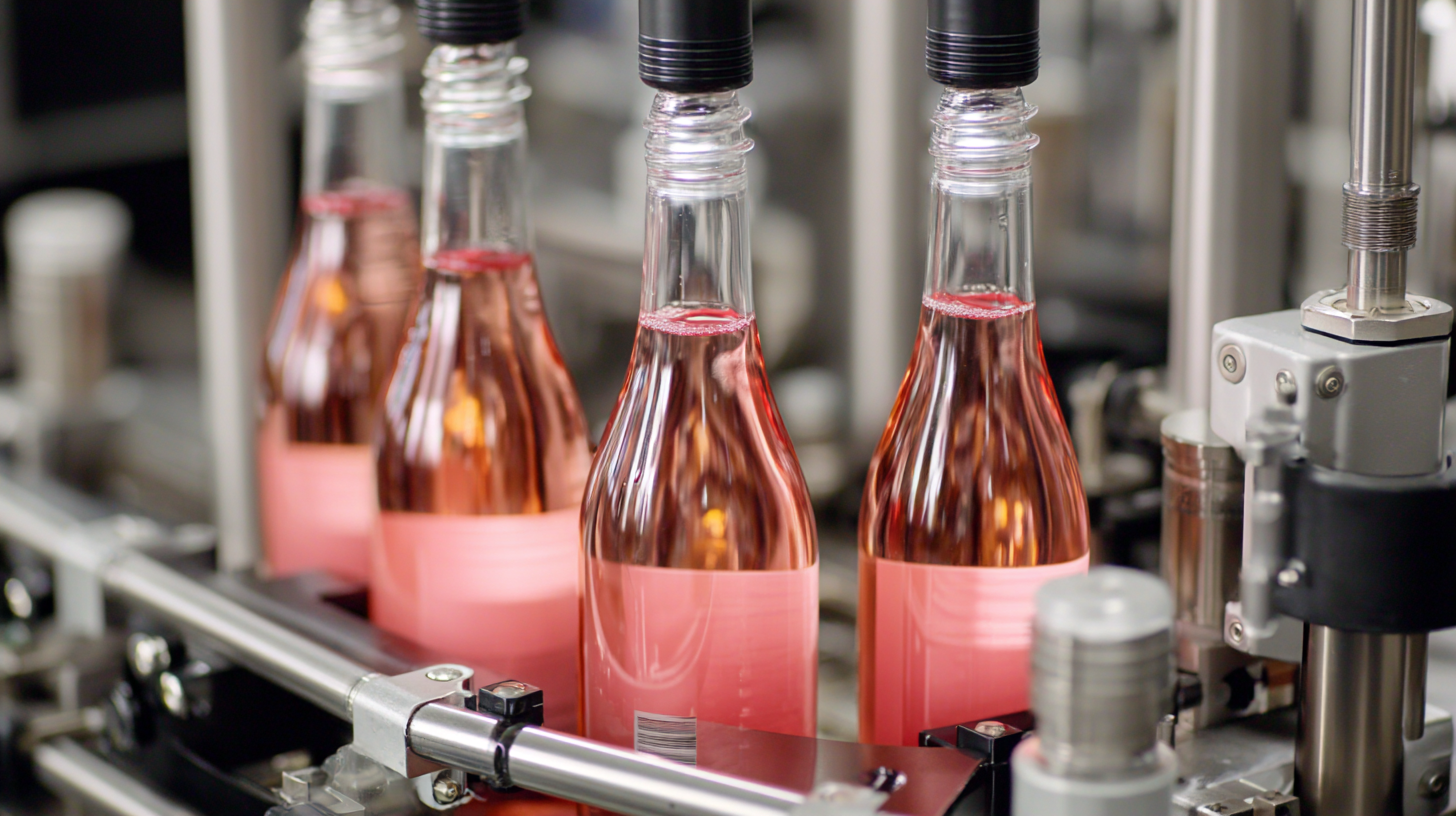In the rapidly evolving beverage industry, staying ahead of the competition requires not only innovative products but also efficient manufacturing processes. One of the crucial components that significantly contributes to operational success is the Bottle Labeling Machine. These machines have revolutionized the way beverages are packaged, ensuring that products not only meet regulatory standards but also appeal visually to consumers. By exploring the innovative uses of the best bottle labeling machines, beverage manufacturers can enhance their efficiency and streamline production processes. This blog delves into the various applications of these machines, highlighting how they can be leveraged to maximize productivity and maintain high-quality standards. As we discuss the advanced features and capabilities of these labeling machines, we'll also uncover strategies that help manufacturers optimize their operations, ultimately leading to greater customer satisfaction and increased market share.

In recent years, the beverage industry has witnessed significant technological advancements in bottle labeling machines, playing a critical role in enhancing production efficiency and product presentation. Modern labeling machines incorporate smart technologies such as sensors and vision systems, enabling real-time quality checks and precise label placements. This has not only reduced waste and errors but also ensured that products maintain a polished and professional appearance that appeals to consumers. These innovations help manufacturers adapt to varying label sizes and shapes, maximizing flexibility in production lines.
Furthermore, automation is becoming increasingly prevalent, with many labeling machines now featuring sophisticated programming capabilities. This allows operators to easily switch between different product lines without extensive downtime. Integrated software solutions help track production metrics, thus facilitating data-driven decisions that lead to improved performance. With the ability to streamline operations and minimize manual input, beverage producers can focus on scaling their production while ensuring consistency and quality in their labeling processes. Embracing these technological advancements positions companies to stay competitive in a rapidly evolving marketplace.
| Feature | Description | Efficiency Impact |
|---|---|---|
| Automatic Label Detection | Detects and applies labels automatically to streamline the labeling process. | Increases speed by up to 30%. |
| Integration with Production Line | Seamlessly integrates with bottling and packaging lines for smoother workflow. | Reduces downtime and improves overall output. |
| Customizable Labeling Options | Allows for various label sizes and shapes to meet specific product needs. | Optimizes labeling for diverse beverage products. |
| Smart Sensors | Utilizes smart sensors to ensure accurate placement of labels. | Minimizes wastage and improves label adhesion quality. |
| User-Friendly Interface | Features an easy-to-use interface for quick operation adjustments. | Reduces training time and increases productivity. |
In the beverage industry, the efficiency of production heavily relies on advanced technologies, particularly bottle labeling machines. These machines come equipped with key features that significantly boost production efficiency. One important aspect is their high-speed labeling capability. Many modern labeling machines can apply labels to bottles at an impressive pace, minimizing downtime and ensuring that production lines keep moving seamlessly. This speed not only maximizes output but also enhances the overall workflow, allowing manufacturers to meet increasing demand without compromising quality.
Another essential feature found in top-tier bottle labeling machines is their flexibility. These machines can easily adapt to different bottle sizes, shapes, and label types, making them ideal for companies that offer a variety of beverage products. With adjustable settings, manufacturers can quickly switch between products without extensive reconfiguration. This adaptability streamlines operations and reduces the time and costs associated with changeovers. Additionally, incorporating automation technologies, such as sensors and programmable logic controllers (PLCs), can further enhance precision in label placement, ensuring a consistent and professional appearance that reflects the quality of the beverage inside.

In the competitive landscape of the beverage industry, innovative labeling techniques are essential for capturing consumer attention and ensuring product differentiation. Recent research from Smithers Pira indicates that the global beverage labeling market is projected to reach approximately $6.3 billion by 2027, with an annual growth rate of 3.9%. This growth is largely driven by the increasing demand for sustainable packaging solutions and customization in labeling. Companies are now leveraging advanced bottle labeling machines to incorporate eco-friendly materials and ergonomic designs that cater to the preferences of diverse consumer segments.
One of the cutting-edge techniques gaining traction is digital printing, which allows for high-quality, vibrant labels that can be customized in small batches. This method not only enhances visual appeal but also provides opportunities for promotional campaigns or seasonal packaging. Additionally, technologies like QR codes and augmented reality are being integrated into labels, offering consumers interactive experiences and additional product information. According to a report by MarketsandMarkets, the use of smart labels is expected to grow at a CAGR of 9.5% from 2022 to 2027, highlighting a significant shift towards more engaging and informative packaging solutions. The beverage industry can maximize efficiency by adopting these innovative labeling techniques while ensuring that their labeling machines are capable of fast changeovers and adjustments for various bottle shapes and sizes.
Integrating labeling machines into beverage production lines is essential for enhancing overall efficiency and maintaining product quality. The first best practice involves selecting the right labeling technology that aligns with the specific production requirements. For instance, utilizing high-speed labeling machines can streamline the process of affixing labels to bottles, reducing downtime and increasing throughput. Additionally, opting for machines that can handle various bottle sizes and shapes ensures adaptability, a critical factor in today’s fast-paced production environments.
Another vital practice is continual training of the staff operating these machines. Ensuring that the team is well-versed in the machine's functionalities can greatly minimize errors and improve maintenance routines. Regular training sessions can also foster a culture of innovation, encouraging team members to share insights on optimizing the labeling process further. Additionally, incorporating advanced software solutions for labeling design and production can help in monitoring and adjusting the labeling parameters in real-time, resulting in greater consistency and accuracy throughout the production cycle.
This bar chart illustrates the efficiency levels associated with different labeling methods in the beverage industry. Fully automatic labeling machines provide a significant increase in efficiency, reaching up to 90%, compared to 60% for semi-automatic and only 30% for manual labeling techniques.
In the beverage industry, efficient labeling has become crucial for enhancing brand visibility and ensuring compliance with regulations. Case studies of beverage companies implementing advanced bottle labeling machines reveal significant improvements in operational efficiency. A report from a leading industry analysis group shows that companies utilizing automated labeling systems can increase production speed by up to 30%, allowing for quicker responses to market demands. The ability to seamlessly adjust labels for product variations plays a crucial role in maintaining agility in supply chains, especially in environments where consumer preferences shift rapidly.

Moreover, misleading marketing on food and beverage labeling has gained attention, prompting calls for more transparent practices. As consumers become increasingly health-conscious, the importance of clear and accurate labeling cannot be overstated. Companies that implement best practices in labeling technology not only comply with regulatory standards but also build trust with consumers. For instance, some organizations reported that rebranding efforts coupled with new labeling standards led to a 15% rise in customer loyalty, demonstrating that efficient labeling strategies can lead to both operational success and enhanced consumer engagement.
Headquarters
2980 Scott St, Vista, CA 92081
Phone: (760) 734-4177
Fax: (760) 734-4188
Open: 8:00 am – 4:30 pm
Texas
8051 Jetstar Dr #175 Irving, TX 75063
Phone: (972) 915-6888
Fax: (972) 915-6999
Open: 8:00 am – 4:30 pm
Florida
14231 Jetport Loop. #1 Fort Myers, FL 33913
Phone: (239) 225-4020
Fax: (239) 225-4024
Open: 8:00 am – 4:30 pm